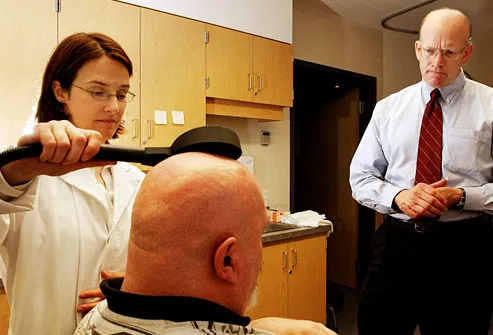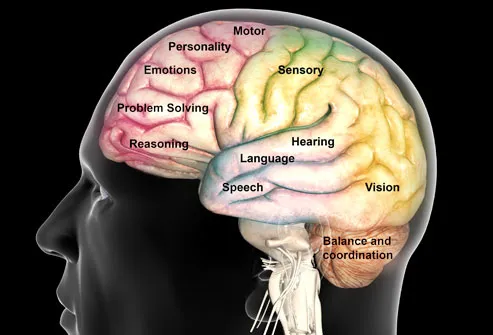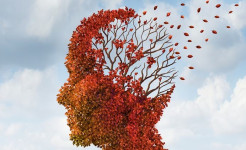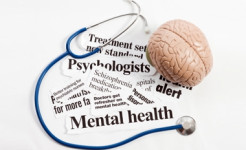Items filtered by date: September 2016
Next step for treatment-resistant depression
When Depression Resists Treatment
It's hard not to feel hopeless when depression treatment doesn't work. But don't give up. As many as two-thirds of people with depression aren't helped by the first antidepressant they try. Work with your doctor to find the best treatments. Depression is highly treatable, and there are many options available. You might find that changing your medication, combining drugs, seeing a specialist, or talking to a therapist helps your recovery and reduces relapses.

Talk Therapy for Focus and Insight
Talking with a mental health professional can help you set goals, tackle problems, and stay focused on medical treatment for your depression. Talk therapy is an important part of treatment for many people with chronic and treatment-resistant depression (TRD). Ask your doctor to help you find a therapist whom you can work with effectively. Talk therapy includes individual psychotherapy and support groups.

Therapy That Can Help
Some people may benefit from specific types of therapy. Cognitive-behavioral therapy (CBT) attempts to break down ineffective or destructive patterns of thinking that may contribute to depression. Problem-solving therapy, a type of CBT, may help people with depression cope with negative or stressful life experiences. Interpersonal psychotherapy examines issues like grief, which may affect the relationships between people or cause depression.

Find the Right Medications
Many people who start taking an antidepressant don’t have a complete recovery and may need a change in treatment. You should see some improvement after six weeks. If your antidepressant isn't working, your doctor may change your prescription or increase your dosage, or prescribe other antidepressants or even other types of drugs to go with it. Continue to take it as prescribed, even if you start to feel better.
Which Antidepressant Is Right?
The most commonly prescribed antidepressants, known as SSRIs and SNRIs, affect the brain chemicals serotonin or both serotonin and norepinephrine, respectively. Your doctor considers side effects, safety, tolerability, and your history of depression when prescribing antidepressants. You may experience mild to severe side effects like dry mouth, nausea, insomnia, sexual problems, changes in blood pressure, or suicidal thoughts from antidepressants. Sometimes side effects go away. If severe side effects persist, talk to your doctor about changing medicines.

Other Treatments for Depression
If several courses of different antidepressants have failed, you and your doctor might consider other medical treatments that can help treatment-resistant depression. Electroconvulsive therapy uses small electric currents to cause a brief seizure in the brain. A series of treatments over several weeks can help ease symptoms of severe depression. In vagus nerve stimulation, a small pacemaker-like device is surgically implanted under the collarbone that sends electrical signals to the brain through a large nerve that runs up through the neck. Transcranial magnetic stimulation (shown) sends magnetic pulses to the brain to improve mood.

Pastoral and Spiritual Counseling
Make sure you have enough support from family and friends so you can cope with your depression. Many people find comfort from being part of a spiritual community. If you are religious, talk with your priest, rabbi, minister, or other religious advisor. These people often know you and your family as individuals. And they can help you articulate the things that are important to you. They'll also help you understand your role in the community.

Volunteer for a Sense of Worth
Depression feeds on isolation. When you separate yourself from the community, your sense of having no value grows stronger. Volunteering is a perfect antidote. It gives you something to do and turns your focus outside yourself. At the same time, it makes you feel good about who you are. Find something you value. Then offer to help.

Let Your Family Help
Depression is hard on you and your family. But remember, they can't help if you won't let them. If you share your feelings, you won't create a divide between you and those you love. Let them help when they can, and consider couples or family counseling. Let your family know they are important in your life.

Plan to Feel Better
You don't always do things that make you happy. But planning enjoyable activities for each day can help your treatment. Each afternoon, jot down a list of what you want to do for yourself the next day. Then add what you need to do for others. Review your plan at the end of each day. How did the things you accomplished make you feel?

Exercise, a Natural Medicine
You may not feel like exercising. But exercise is effective in easing depression. Your body's physical response to exercise actually improves your mood. That's because exercise causes the release of endorphins. These chemicals trigger a positive feeling. It doesn't matter what kind of exercise you do. Just find something you enjoy and start moving.

Support From Others Who Understand
A support group is made up of people who know what it feels like to be depressed. It helps to know others understand how you feel. Even more important, they can share coping techniques from their own experience. Plus you have the opportunity to share your successes with them. Ask your doctor to help you find a support group in your area.

















